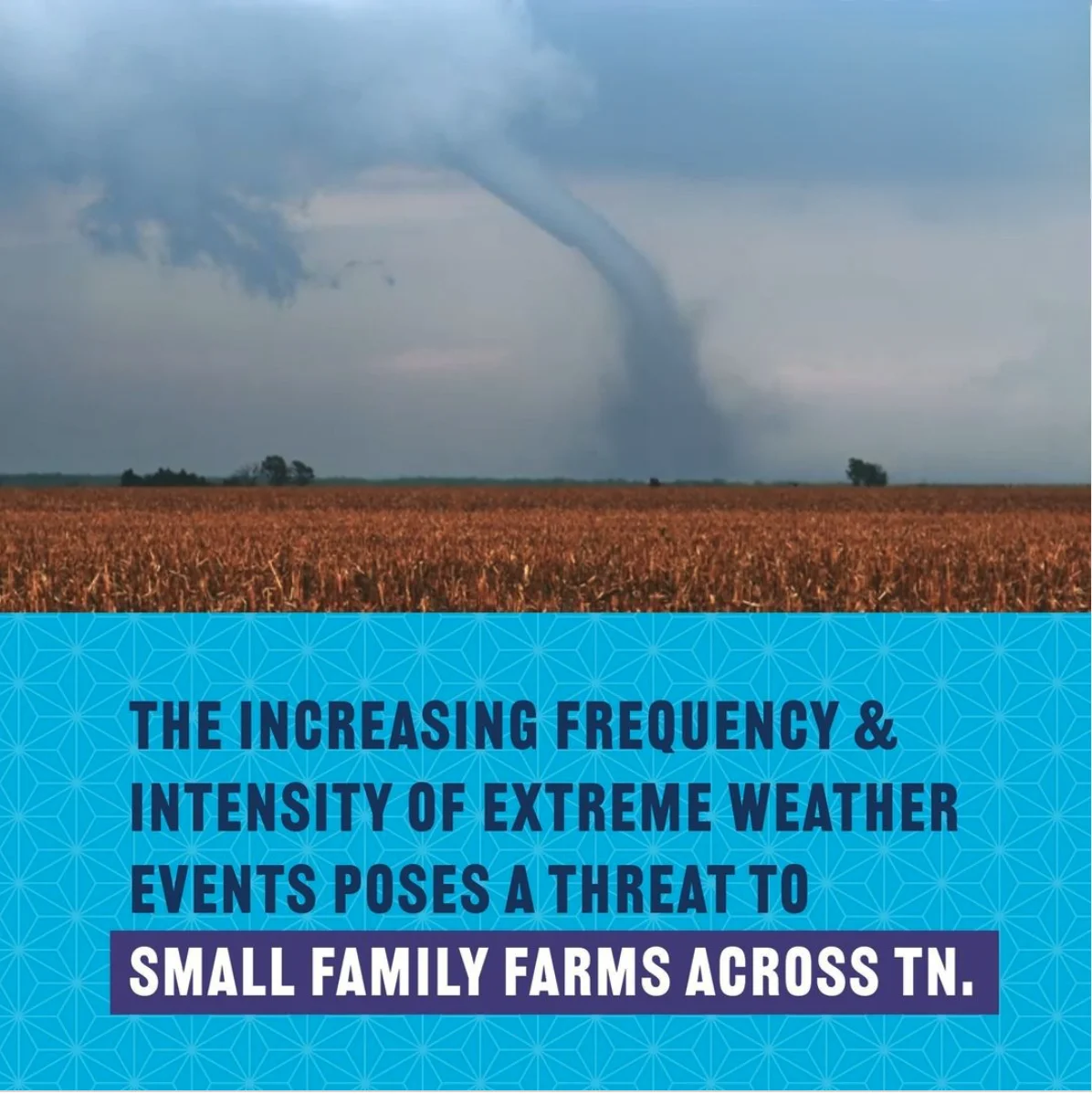
How small family farms weather the storm
ORAU public health researchers are partnering with the University of Tennessee Knoxville to understand extreme weather-related challenges faced by small family farms in Tennessee. By exploring practices and strategies to mitigate the impact of these challenges, ORAU will develop an emergency preparedness resource guide to improve farmers’ preparedness and response capabilities.
One of the many benefits of being a member of ORAU’s university consortium is the opportunity to participate in the ORAU-Directed Research and Development Program (ODRD). ODRD is a grant program that supports collaborations between ORAU researchers and faculty at our member universities.
One of the projects that received ODRD funding in the 2024 fiscal year focused on the impact of extreme weather on small family farms. Amanda McHale, DrPH, of ORAU public health and healthcare, and Jennifer Russomanno, DrPH, of the University of Tennessee, are leading this project. The two recently discussed their findings on an episode of Further Together: The ORAU Podcast.
“We looked at how small family farms in East Tennessee manage extreme weather events,” McHale explained, “and in turn, how that affects their health.”
Russomanno and McHale collaborated on a pilot study which focuses on emergency preparedness and response.
“I own a small farm in Jefferson County, and I have owned it for over a decade at this point,” said Russomanno. “What we've noticed is that when these things happen—high winds or droughts or tornadoes or whatever it might be—when you're thinking about the small family farm, there's not a lot of support. There's not a lot of money out there that supports small family farms.”
Small family farms—defined as farms with a gross cash farm income of less than $350,000—make up 90% of farms nationwide, and 95% of farms in Tennessee. However, McHale and Russomanno could find no data on how these farms manage extreme weather.
“We had this huge cohort of small farms, but we don't actually know what's happening when we have, again, these tornadoes in December or people lose their entire crop because of a drought,” Russomanno said. “We had no idea. So essentially, because we had no idea, we really had to start with qualitative data because we had to ask the questions we didn’t know the answers to.”
For their research, Russomanno and McHale conducted in-depth interviews with farmers residing in five East-Tennessee counties. They spoke directly with farmers and also got to see first-hand the challenges these farmers were facing.
“The majority of participants in our study—when asked about changes in weather over time in Tennessee—responded that the weather patterns are changing,” said McHale. “The most common changes we've heard so far are milder winters and stronger winds.”
A positive finding from the data is the strong bonds that farming communities share.
“Participants in our study gave examples of how others in the community have helped them overcome challenges when dealing with extreme weather events,” McHale continued. “As well as themselves helping other farmers during challenges in dealing with extreme weather events. And you know, this kind of makes sense because rural communities are tight knit. They're close and they have a strong sense of belonging to their community. They described a variety of sources where this community support came from, including neighbors, including friends, family, being a part of associations and groups, getting information from the county extension offices.”
“But one thing that I think was really interesting to us is that every single farmer that we interviewed had an off-farm income, every single one,” Russomanno explained. “So, none of them were completely reliant on farm income. They all talked about how they farm because of the love of farming, how they really loved their land. A lot of the farmers that we interviewed had legacy farms where the farm has been in their family for many, many generations. They had planned to leave the farm to their kids. But they did say that if they relied on their farm on a full-time basis, their responses to extreme weather could be very different.”
Because these families supplement their farms with additional incomes, Russomanno said that the farmers are either unwilling or unable to make infrastructural changes to their farms, affecting the ways that they prepare for extreme weather events. This brought about an interesting implication.
“With 95% of the farmers in Tennessee owning small farms, what does that mean for sustainability?” asked Russomanno. “If we’re made up of mostly part-time farmers, mostly hobby farmers in our state, what does that mean in the long term for the small family farm?”